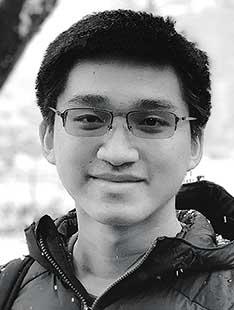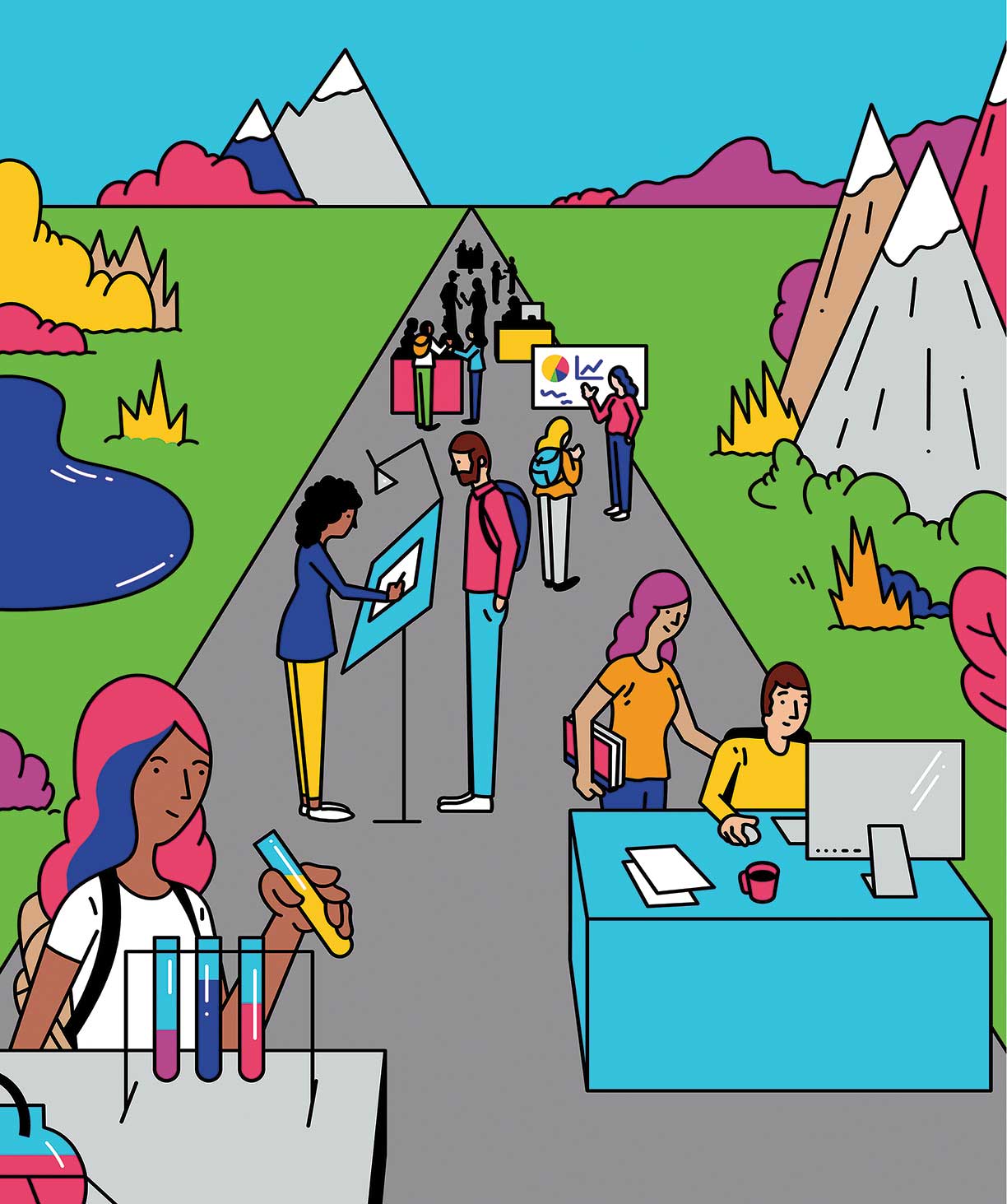Gap-Year Students Explore Start-Ups, Newspapers, Nonprofits, and More
The gap year has been “a great adventure,” said Laeo Crnkovic-Rubsamen ’24

The pandemic disrupted many Princeton students’ plans when classes went virtual and social life was restricted. One popular alternative was taking a gap year: According to a memo from Dean of the College Jill Dolan, 496 students originally in the classes of 2021, 2022, and 2023 opted to do that this year, while 217 admitted students from the Class of 2024 deferred enrollment.
Laeo Crnkovic-Rubsamen ’24 had already taken a gap year before coming to Princeton and had no plans for a second. But that changed when Princeton announced in early August that most students would not be allowed on campus in the fall. “I found my learning style was not conducive to the virtual experience,” said Crnkovic-Rubsamen, who also realized he wouldn’t be able to enjoy the social aspects of college online.
Around that time, a friend from high school reached out about creating a startup, now called Plexus. The idea was to create a note-taking app that could scan through typed notes and make note-taking more useful.
Crnkovic-Rubsamen decided to focus on the startup. Since then, he’s spent much of his time either coding or in team meetings. He plans to enter Plexus in startup competitions in preparation for a launch in early summer.
The gap year has been “a great adventure,” said Crnkovic-Rubsamen. “It’s been a steady growth process.”
Alice McGuinness ’23 also decided to take a gap year when she realized classes would be virtual. Last summer, McGuinness interned for Integrated Refugee & Immigrant Services (IRIS), a nonprofit in Connecticut that helps local refugee and immigrant families. She helped connect refugee and immigrant youth to remote-learning resources.
She decided to stay with the nonprofit and took on new responsibilities. She now organizes speaking events, trains interpreters, calls IRIS clients for vaccine outreach, and organizes a program that pairs English-speaking volunteers with refugee women who are learning the language.
In addition to her work with IRIS, McGuinness works as an ESL tutor and volunteers with Maitri, a nonprofit serving South Asian victims of domestic violence, transcribing interviews for them. She took Urdu language classes in the fall and plans to take a Bengali language class this summer, both through the U.S. Department of State’s Critical Language Scholarship Program.
Life has settled into a rhythm. “A tiny part of me feels like I could just keep working there forever,” she said. “[My work] has definitely helped me figure out that this is something I’d like to do in the future, either working at a nonprofit or working with immigrants and refugees.”
Lydia You ’23 had been thinking about a gap year even before COVID-19 hit. She wanted to explore a career in journalism and think about what she would do for independent work as a computer science major. She planned for an in-person journalism fellowship in a newsroom, along with some international travel, but “during COVID, none of my plans worked out,” she said.
You did find a remote position at The Argonaut, a local newspaper in Santa Monica, writing stories about technology and politics and creating data visualizations related to the stories.
“It was such a wonderful experience because that really was my first exposure as a journalist, albeit in a very weird, virtual time,” said You. She also had a software-engineering job with Borderless, a financial technology startup.
By winter, she had left her jobs and began feeling directionless as she worried about wasting her free time. “I had a huge identity crisis, and I was also facing burnout, and I was questioning my decisions about my life,” said You. “But I think once I had that moment, it helped me be OK with where I was.”
She recently worked and lived 0n a farm for three weeks, and she’s been reading and writing poetry. While You doesn’t think she planned her gap year well, she’s not upset with what she’s been able to do.
“A lot of this past year was dismantling all these preconceptions I had of what a successful life was and what a successful life for me would be,” said You. “I feel like I’ve become more aware of the world around me and more aware of what will fulfill me.”












No responses yet